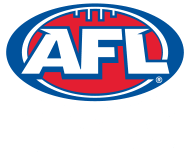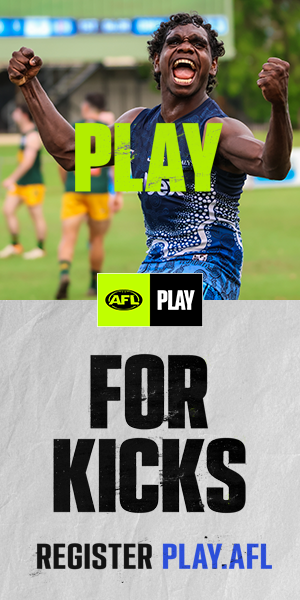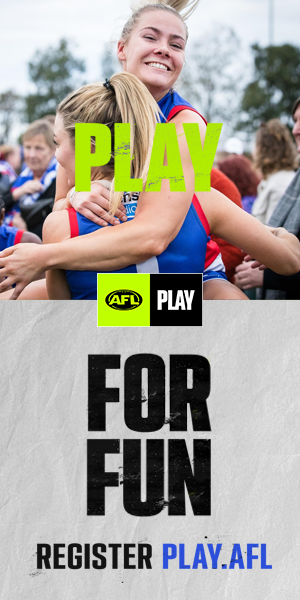Bernie Gottke was a rugby league man. He knew nothing of Australian football until he went to watch his son Phillip play a school’s grand final at the old cricket ground in Rockhampton in 1979. They were six goals down at three-quarter time and won by six goals, and he left not only with a new-found sporting passion but a life-changing ‘job’ for 20 years.
It was all a clever ploy by then Wandal Bulls captain-coach and president Darrell Dunnett, who was forever looking for recruits to a code that was new to the city. He’d heard of Gottke and his administrative capabilities so he positioned himself right behind him during the last quarter as the thrilling comeback unfolded.
As Gottke recalls, “When the final siren went and everyone started jumping around he (Dunnett) tapped me on the shoulder and said ‘you can be secretary’. And I was.”
From this unlikely setting came one of the most influential administrators in what is now AFL Capricornia – the man after whom the League’s highest individual award, the Bernie Gottke Medal, is named. A Life Member of the Glenmore FC, AFL Capricornia and the now defunct Central Queensland Australian Football Association.
Born in Tully, Gottke had moved to Rockhampton with his family at 14 and is still there. He played junior rugby league with Norths until his coach delivered a ‘no train – no play’ ultimatum. Given training clashed with his studies he bid farewell to the game.
Study was always a priority, and ultimately saw him enjoy a long and successful career in the electrical supply industry. He was a long-time supervisor, in charge of as many as 50 people, and found the happy knack of working together with management and workers and keeping both parties happy.
“I always believed if you’re going to do something do it properly. I learned to look after the welfare of my staff and negotiate with management for the good of all concerned. I formed the view very early that I wanted to make a difference, and I lived by that,” the now spritely 87-year-old said in reflection.
He was a young man who grew up quickly when married at 19 to Olga, an only child whose parents had died. “We’d been going together for a few years and we thought ‘why not?’,” he explained, having had four children with her before she passed away in 1999.
There was David, who now lives in Brisbane, Karen, who is in Port Headland, Western Australia, and Helen and Philip, who live in Rockhampton. Later he married his second wife, Daphne, who had been great friends with Olga. With their respective first-time partners, they made a close-knit group, and when Daphne, too, was widowed she and Bernie got together until she died of cancer in 2009.
A man who was never afraid to rock the proverbial boat, never averse to change, Gottke was a stickler for detail. He knew what he thought was right and did things his way. He had a profound influence on League governance and regulations, the quest for a headquarters ground, and some of the ‘little things’ that make a big difference.
“When I got involved with the League, I discovered that one club pretty much ran everything. They’d arrive at the Annual General Meeting of the League with 50 or 60 members and get pretty anything through a vote because they had the numbers,” he said. “So, we introduced a system whereby there was an executive and each club had two delegates who could vote and that was it.”
“There was a time when players would wear the team jumpers but all sorts of odd shorts and socks. It looked terrible so I introduced a $5 fine for each offence. It went down like a lead balloon, but it eventually got through and it made a difference because we started to look a lot more professional.
“We used to have all the League meetings in the city, moving them around the various hotels, which meant the same clubs from outside the city had to travel all the time. So, we rotated the meetings through all locations.
“Some meetings were an excuse for a drink, and sometimes too many. Once the president of one club threw a stubbie at the president of another club. We resolved that any motions put when there was alcohol on the table were ruled null-and-void.
“I sided with the decent people at each club and always offered to help them with their problems. In return, bit by bit, we started to get people take more of a League-first approach to the game rather than the club-first mentality that had prevailed for a long time.”
Gottke also led the push for a robust representative program and a strong investment in junior ranks, and ultimately secured QAFL support for the appointment of the region’s first full-time development officer – ex-Western Districts (QAFL) player Keith Bedford.
“I convinced the League to pay half of the money if the clubs paid the other half, which they agreed to do. They put in $3,000 each. It was originally a three-year deal but after two years things were going so well the QAFL took over the funding completely,” he said.
Once, at a time when the junior league started to work at cross-purposes to the senior League, Gottke and League president john Broad even pulled off an almighty bluff to resurrect things. “We walked in and said ‘under the constitution we have the power to hire and fire the junior committee so you’re all sacked’. We had a replacement committee ready to go, and once things settled down and everything was working smoothly, we had to admit that in fact there was no such constitutional power. We made it up.”
He and Broad were quite a pair. They were great mates who got a lot done but were known to have the odd verbal stoush. So much so that one day they were ‘reported’. Facing the tribunal, they turned up overplaying the ‘love’ and were sent away with a warning and told ‘don’t do it again’.
But the big issue for Gottke was the need to develop a showpiece venue. He met a lot of early resistance but in the end found a way to make it happen. He challenged clubs to support the ‘greater good’ and offered different options.
“Often they just laughed at me, and then a guy from Blackwater said to the meeting ‘if he (Gottke) thinks he can do why not let him try? What do you have to lose? If he fails, you can laugh a bit more. In the end they thought that was a great idea,” Gottke recounted.
When finally he secured the site at Glenmore, now Stenlake Park, Gottke went to work. Literally. He borrowed a bulldozer and a grader from long-time supporter John Bartlem and, with a band of helpers, shaped the ground from what was nothing more than scrub and bushland.
With that, the other clubs realised it was going to happen. Eventually support grew, although there was one vote which only got through because one club delegate voted the wrong way in error.
When the League recruited Gottke they got a ‘two for one deal’, with daughter Helen also getting on board. She was League secretary from 1987-97 and was awarded Life Membership after 10 years.
But nothing can compare with the administrative CV of her father. He was CAFL treasurer for 20 years from 1981-2000, the CAFL delegate to the QAFL form 1985-2000, Wandal secretary from 1989-95 and president 1988-90.
Eventually Gottke’s push for a robust representative platform saw the formation of the Central Queensland Australian Football Association, covering Emerald, Blackwater, Tiera, Gympie, Bundaberg, Boyne Island, Gladstone, Yeppoon, Rockhampton and, for a short time, Biloela. He was treasurer in 1984, vice-president 1985-86, secretary/treasurer 1987, treasurer 1988-89, secretary/treasurer 1990-91 and League delegate 1992-93-94. After the formation of the CAFL Juniors he was treasurer from 1993-2000. Essentially, if a job had to be done, he did it.
As the turn of the century approached Gottke scaled back his football duties and devoted more time to his new ‘love’ – the Rockhampton Bowls Club. He loved the involvement, first as a bowler and social club member, and then, as time wore on, as an administrator. As only Gottke could do, he got right involved. Assistant-Secretary, Secretary, President/Secretary, Management Committee, the works. To the surprise of nobody, he helped make his bowls club a better place and was rewarded with Life Membership. It was football all over again.





















































